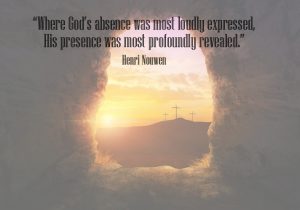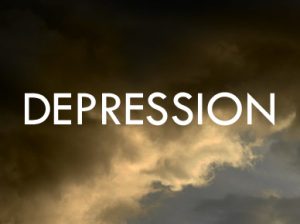always “on call”
I was somewhere between the comforters and the towels at my local Home Goods store. Next to me, a woman was shopping for similar items when I heard a very familiar ringtone coming from her purse. As soon as I heard the triumphant beat on the phone, my heart felt like it plummeted to my stomach. A surge of cortisol-adrenaline swept over me. My mouth got dry, my cheeks were hot, and I began to sweat. I looked around in confusion. An impulse to run out of the store hit me so I did. Back in my car and trying to calm down, I tried to figure out what was happening inside my body. I clearly had little control over my body’s response, and it made me wonder if I might be going a little crazy.
The ringtone I heard was the same sound of the “pastor-on-call” phone that I answered as a counseling intern years earlier during my graduate school training. It had been an older model phone that each intern rotated for one week every six weeks when we were on call. I had heard lots of stories from other interns about their experience answering the calls. One friend told me she went to the scene of a bad car accident to support and pray for the people involved. We never knew what might be on the other end of line. It could range between a wrong number, a prayer request, a physical need, to more life-threatening situations, yet all needed to be responded to urgently. Needless to say, the responsibility for the unknown terrified me. But until that ordinary day years later, I did not realize what a profound impact it had on me.
I am an Enneagram 6, if you know what that means. I am usually good at anticipating disasters and their complications. I know where exit doors are, wherever I am. I also try to plan and manage my world so that chaos does not reign. So, you can imagine how the potential of crisis on the other end of the phone would heighten my fears. I would say my anxiety has been what Paul called a “thorn in the flesh”. Anxiety has caused me to call out to God and ask for help repeatedly. I have not been able to change the fact that I am anxious, but I do know God’s presence in the anxiety has brought me hope to face it.

That day in Home Goods, my body was responding to what it thought was a potential threat. It remembered the anxiety that I experienced during those days of my internship. The amygdala is a small part of the brain that is responsible for the flight/fight/freeze trauma response that we all know and have experienced. It’s like an alarm that, when triggered, tells us to fight off an attacker or run away from danger or to freeze. It releases adrenaline and cortisol to give us the energy and strength to run or fight off a threat.
I read some complex books in graduate school explaining the trauma response. However, recently I read a children’s book I had bought for my grandchildren, but I found it very enlightening for their grandmother! Hey Warrior explains the fight/flight/freeze response in terms that are easily understood. Author Karen Young explains that the problem is that the amygdala can’t distinguish between a real threat and an imagined one. It is like a smoke alarm that responds the same to both burnt toast and an actual out-of-control fire. The book suggests not letting the amygdala be our “boss” and even giving it name. I decided to call my amygdala “Disaster Queen” or sometimes just “DQ”. The author encourages breathing deeply and evaluating whether there is a real threat or not. Turns out that deep belly breathing can clear out some of the cortisol-adrenaline produced in the body. Also, exercises like running or briskly walking can do the same. God has given us not just an alarm to protect us, but also a way to deal with the alarm when needed.
So that day at Home Goods, my body remembered the ringtone that had brought me trauma years before. My “warrior” (amygdala) sent the alarm and my body responded as if the threat were real and present, even though it had been several years after I had to answer that phone. Some might say that ringtones aren’t a real threat anyway! But to a student counselor, it was.
We are exposed to so many things today that can trigger our bodies to believe there is imminent danger. And there are real situations of danger that make us thankful for our body’s protective response. Our amygdala is our God-given protection from danger. Our constantly connected world brings us more trauma than we can handle through our phones, television, movies, news, etc, which makes me love the simplicity of dealing with it through the lens of a child’s book even more: first, cry out to God for help, then take some deep breaths and maybe a brisk walk and evaluate the threat. And then let “DQ” know she is not the boss because our loving Father is in really the one in charge.
 Laurie has been a counselor at The Barnabas Center since 2018. She completed her Master of Christian Counseling at Gordon Conwell Theological Seminary in 2015 and her undergraduate degree in Human Development at UNC-Chapel Hill. Laurie is married to Michael and they have five grown children, three grandsons, and one granddaughter. In her spare time, she enjoys yoga, walking, reading, spending time with friends and family, especially playing with her grandchildren.
Laurie has been a counselor at The Barnabas Center since 2018. She completed her Master of Christian Counseling at Gordon Conwell Theological Seminary in 2015 and her undergraduate degree in Human Development at UNC-Chapel Hill. Laurie is married to Michael and they have five grown children, three grandsons, and one granddaughter. In her spare time, she enjoys yoga, walking, reading, spending time with friends and family, especially playing with her grandchildren.





